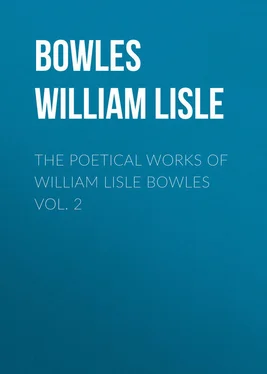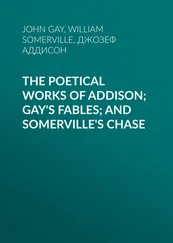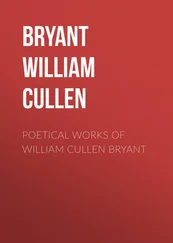William Bowles - The Poetical Works of William Lisle Bowles Vol. 2
Здесь есть возможность читать онлайн «William Bowles - The Poetical Works of William Lisle Bowles Vol. 2» — ознакомительный отрывок электронной книги совершенно бесплатно, а после прочтения отрывка купить полную версию. В некоторых случаях можно слушать аудио, скачать через торрент в формате fb2 и присутствует краткое содержание. ISBN: , Жанр: foreign_antique, foreign_prose, foreign_poetry, на английском языке. Описание произведения, (предисловие) а так же отзывы посетителей доступны на портале библиотеки ЛибКат.
- Название:The Poetical Works of William Lisle Bowles Vol. 2
- Автор:
- Жанр:
- Год:неизвестен
- ISBN:http://www.gutenberg.org/ebooks/32145
- Рейтинг книги:4 / 5. Голосов: 1
-
Избранное:Добавить в избранное
- Отзывы:
-
Ваша оценка:
- 80
- 1
- 2
- 3
- 4
- 5
The Poetical Works of William Lisle Bowles Vol. 2: краткое содержание, описание и аннотация
Предлагаем к чтению аннотацию, описание, краткое содержание или предисловие (зависит от того, что написал сам автор книги «The Poetical Works of William Lisle Bowles Vol. 2»). Если вы не нашли необходимую информацию о книге — напишите в комментариях, мы постараемся отыскать её.
The Poetical Works of William Lisle Bowles Vol. 2 — читать онлайн ознакомительный отрывок
Ниже представлен текст книги, разбитый по страницам. Система сохранения места последней прочитанной страницы, позволяет с удобством читать онлайн бесплатно книгу «The Poetical Works of William Lisle Bowles Vol. 2», без необходимости каждый раз заново искать на чём Вы остановились. Поставьте закладку, и сможете в любой момент перейти на страницу, на которой закончили чтение.
Интервал:
Закладка:
William Lisle Bowles – whom we have ventured to call the father of modern poetry, since not only was he first in the field, but since his sonnets inspired the more powerful muse of Coleridge – was descended from an ancient and respectable family in Wiltshire. His grandfather and father were both clergymen in the Church of England. The poet was born in King's Sutton, and baptized there on the 25th of September 1762. In the year 1776 he was placed on the Wykeham foundation at Winchester. His master was Dr Joseph Warton, who, seeing genius disguised under the veil of his pupil's boyish timidity, encouraged him in his efforts, was warmly loved by Bowles in return, and transmitted to him his very moderate estimate of the poetry and character of Pope. Bowles has testified his gratitude to his teacher in his very pleasing "Monody on the Death of Dr Warton." During the last year he passed at Winchester, Bowles was captain of the school. In the year 1781, he was elected a scholar of Trinity College, Oxford, having selected this college, because the brother of his old master, Thomas Warton, was residing there. In 1783, he gained the Chancellor's prize for Latin verse – "Calpe Obessa; or, The Siege of Gibraltar," being the subject of the poem. At college he got no fellowship, nor did he procure his degree till 1792. At an early age, he is said to have been unsuccessful in his suit to a Miss Romilly, a niece of Sir Samuel Romilly; and this rejection it was which first stung him into rhyme and rambling; for, in order to deaden his feelings, he traversed the north of England, Scotland, and parts of the Continent. His first production consisted of fourteen sonnets, published in 1789, and was followed the same year by "Verses to John Howard." In 1790, he reprinted these and various other pieces written in the interval, and in 1798 they were reproduced with illustrations. They became so popular, that by the year 1805 they had reached a ninth edition.
Almost every year from 1798 till the end of his life, Mr Bowles was adding to his works new poems of various merit. In 1798, appeared his "Coombe Ellen, and St Michael's Mount;" in 1799, "The Battle of the Nile;" in 1801, "The Sorrows of Switzerland;" in 1803, "The Picture;" in 1805, the "Spirit of Discovery;" in 1806, "Bowden Hill;" in 1815, "The Missionary of the Andes;" in 1822, "The Grave of the Last Saxon;" in 1823, "Ellen Gray;" in 1828, "Days Departed;" in 1833, "St John in Patmos;" and in 1837, a volume entitled "Scenes and Shadows of Days Departed, a Narrative;" besides "The Village Verse-book," a very popular selection of simple poetry.
The events of this gentleman's private and professional life were of no particular interest. Having entered holy orders, he resided for many years as curate in Donhead St Andrew, in Wilts, where he remained till 1804, when he was appointed vicar of Bremhill – a situation which he continued to fill till the end of his long life. In 1792, he was presented to the vicarage of Checklade, in Wiltshire, which he resigned, after an incumbency of five years, on receiving another presentation to the rectory of Dumbleton, Gloucestershire. This living he retained till his death, although he never resided at either Dumbleton or Checklade. In 1804, through Archbishop Moore, he was made vicar of Bremhill, and, the same year, prebend of Stratford in the cathedral church of Salisbury. In 1828, he was elected canon-residentiary. He had, in 1818, been appointed chaplain to the Prince Regent. He resided constantly at Bremhill for twenty-five years. After he was elected canon, however, he abode partly, and in the latter years of his life principally, in the town of Salisbury. In 1797, he married Magdalene, daughter of the Rev. Charles Wake, D.D., prebendary of Westminster, and grand-daughter of Archbishop Wake. She died some years before her husband, and left no family. Bowles himself expired at Salisbury, after a gradual decay of the vital powers, April 7, 1850, aged eighty-eight years. His life is about to be written at large by his kinsman, Dr J. Bowles, assisted by Mr Alaric Watts, to whom the publisher is indebted for the means of supplying a complete copyright edition of the poet's works.
Bowles was a diligent pastor, an eloquent preacher, an active justice, and in every way an estimable man. Even Byron, who met him at Mr Rogers', in London, speaks of him as a "pleasant, gentlemanly man – a good fellow for a parson." Moore, in his Diary, speaks with delight of his mixture of talent and simplicity. In his introduction to "Scenes and Shadows," Bowles gives some interesting particulars of his early life. In Blackwood , for August 1828, there is a very entertaining account of Bremhill Parsonage.
As an author, he appears in three aspects – as a writer on typography, as an editor and controversialist, and as a poet. In 1828, he produced a volume entitled "The Parochial History of Bremhill," and shortly afterwards, his "History of Lacock Abbey," containing much interesting antiquarian lore. To this succeeded a still more ingenious and recondite work, entitled "Hermes Britannicus," besides some less important writings of a similar kind. His "Life of Bishop Ken," which appeared in 1830 and 1831, might be considered as belonging to the same category of learned antiquarian lucubrations.
In 1807, he published an edition of Pope, in ten volumes, for which he received £300. The life prefixed to this edition led to the celebrated controversy between Bowles, on the one hand, and Campbell, Byron, Roscoe, Octavius Gilchrist, and the Quarterly Review , on the other. In our life of Pope, we hope to devote a few pages to the principal questions which were mooted in this controversy. We may simply say, at present, that we think Bowles was, in the main, right, although he laid himself open to retort at many points, and displayed an animus against Pope, both as a man and a poet, which he in vain sought to disclaim, and which somewhat detracted from the value of his criticisms. He gained, however, the three objects at which he aimed: – he proved that Pope was only at the head of the second rank of poets – that, as a man, he was guilty of many meannesses, and had a prurient imagination and pen – and that the objects of artificial life are, per se , less fitted for the purposes of poetry than those of nature, and than the passions of the human heart. In this controversy, as well as in some after-skirmishes, – in his letters to Lord Brougham, "On the Position and Incomes of the Cathedral Clergy," – in a letter to Sir James Mackintosh, on the Increase of Crime, – and in a sharp fight with the Rev. Edward Duke, F.S.A., on the Antiquities of Wiltshire – Bowles displayed amazing PLUCK, and no small controversial acuteness and dexterity. Like another Ajax, he took enemy after enemy on his single shield, and by his pertinacity and perseverance, he succeeded in beating them all. He stood at first alone, and had very formidable opponents. But he bated not one jot of heart or hope; and, by and by, Southey, Blackwood's Magazine , and others, came to his aid, and, finally, William Hazlitt saw, with his inevitable eye, the real merits of the case, and (substantially inclining to the Bowles side) settled, by a paper in the London Magazine , the question for ever. As a controversialist, Bowles is rather noisy, flippant, and fierce; and his reply to Byron, while superior to the noble bard's letter in argument, is far inferior in easy and trenchant vigour of style. His writings on the Pope controversy consist of "A Letter to Thomas Campbell," "Two Letters to Lord Byron," "A Final Appeal to the Public relative to Pope," and (more last words!), "Lessons in Criticism to William Roscoe, and Farther Lessons to a Quarterly Reviewer." All are exceedingly readable and clever.
It is curious contrasting the spirit of Bowles' prose – his severity – his pugnacity – his irritability, with the mild qualities of his poetry. The leading element in all his poetical works is sentiment, – warm, mellow, tender, and often melancholy sentiment. He has no profound thought – no powerful pictures of passion – no creative imagination – but over all his poetry lies a sweet autumnal moonlight of pensive and gentle feeling. In his larger poems, he is often diffuse and verbose, and you see more effort than energy. But in his smaller, and especially in his sonnets, and his pieces descriptive of nature, Bowles is always true to his own heart, and therefore always successful. How delightful such sonnets as his "Morning Bells," "Absence," "Bereavement," and his poems entitled, "Monody at Matlock," "Coombe-Ellen," "On Hearing the 'Messiah,'" etc. ! We trust that many, after reading these and the others (some of which were never before published) contained in our volumes, will be ready to express the gratitude of their hearts through the medium of the following beautiful sonnet: —
Читать дальшеИнтервал:
Закладка:
Похожие книги на «The Poetical Works of William Lisle Bowles Vol. 2»
Представляем Вашему вниманию похожие книги на «The Poetical Works of William Lisle Bowles Vol. 2» списком для выбора. Мы отобрали схожую по названию и смыслу литературу в надежде предоставить читателям больше вариантов отыскать новые, интересные, ещё непрочитанные произведения.
Обсуждение, отзывы о книге «The Poetical Works of William Lisle Bowles Vol. 2» и просто собственные мнения читателей. Оставьте ваши комментарии, напишите, что Вы думаете о произведении, его смысле или главных героях. Укажите что конкретно понравилось, а что нет, и почему Вы так считаете.












